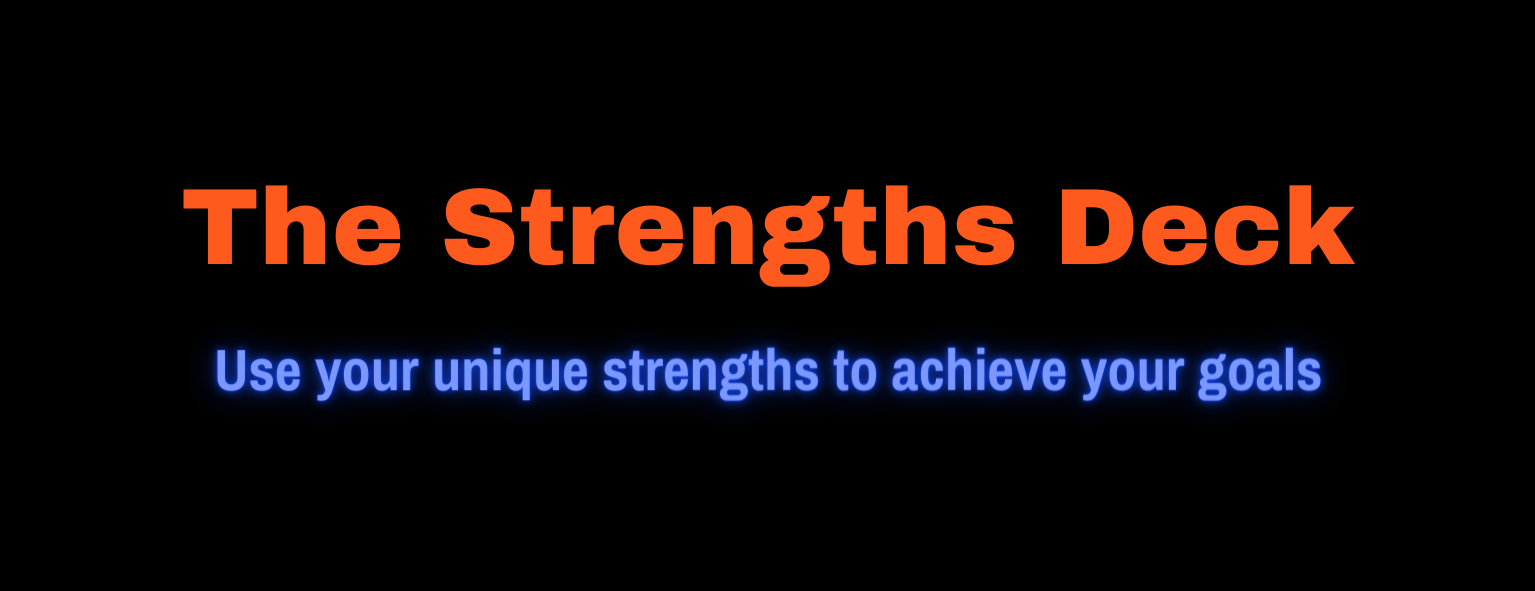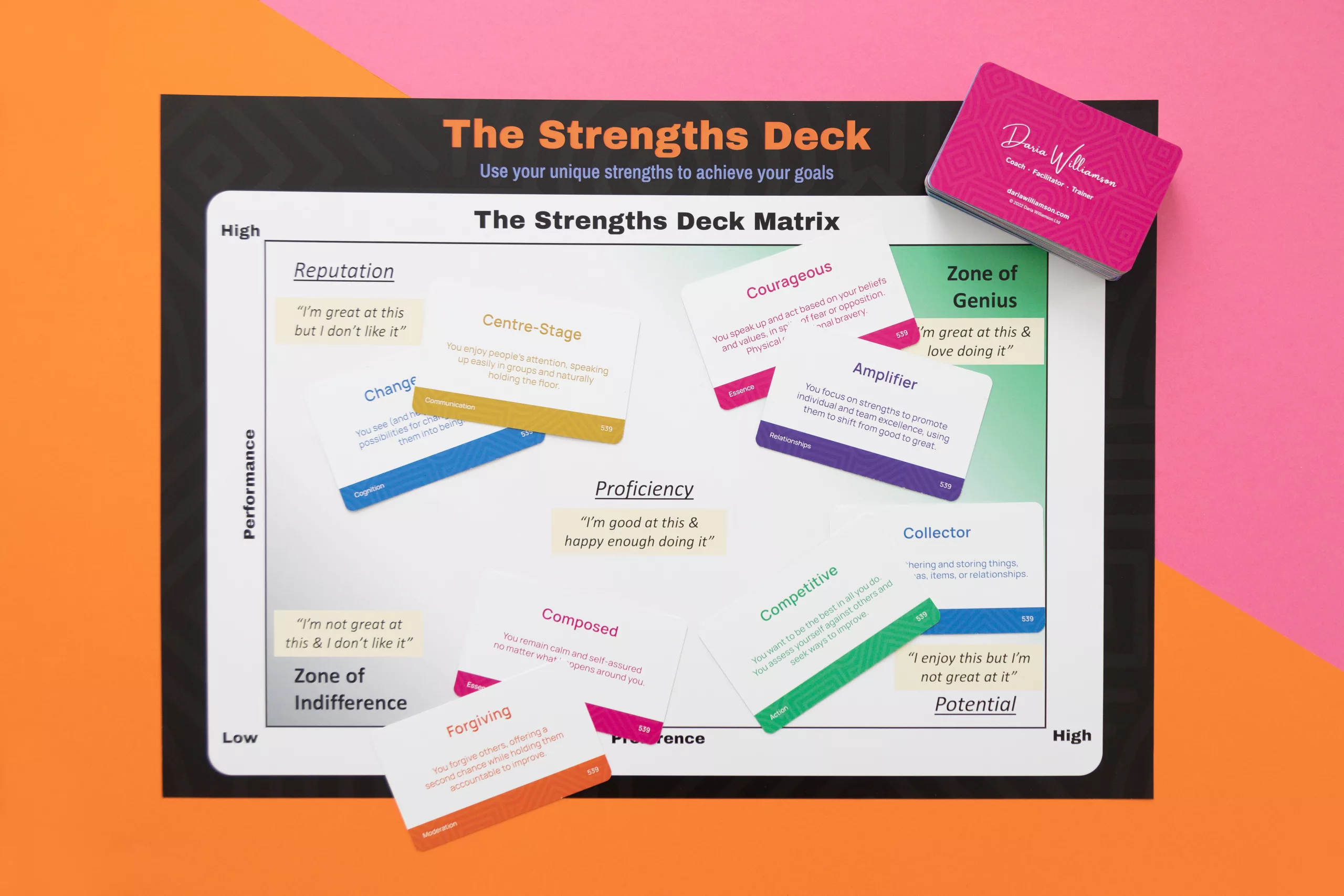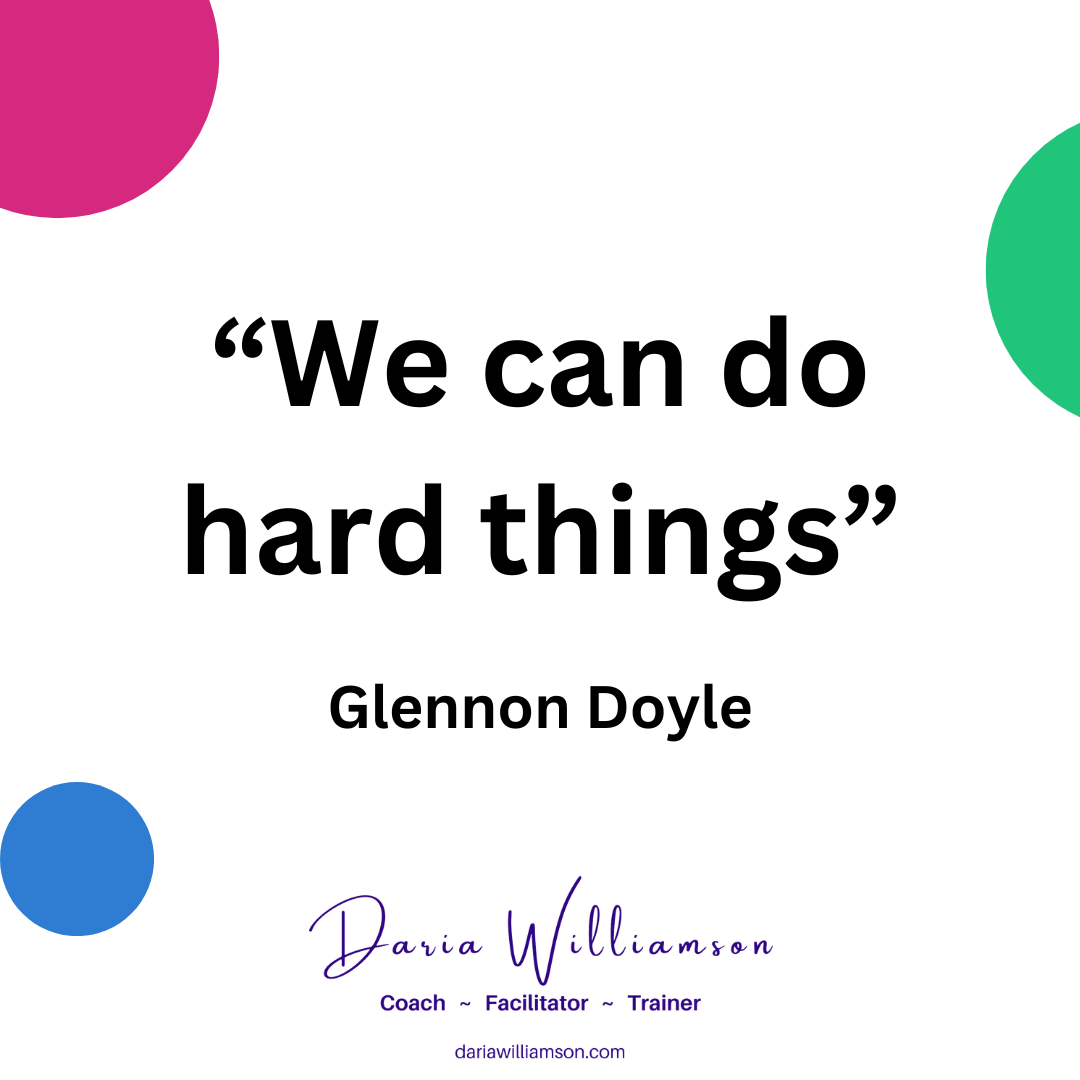One of the most common questions I hear when talking to people about their strengths is whether it is possible to overuse a strength. After all, it’s something that you’re great at, and that lights you up. What could possibly go wrong?
Remember "Occupational Overuse Syndrome"?
When I first learned how to type, it was on typewriters (yes, I’m THAT old!) And one of the big issues of the day was Occupational Overuse Syndrome (OOS, now often called Repetitive Strain Injury or RSI).
OOS/RSI developed over time, as you keep doing the same movements over and over again. Eventually, it can become debilitating, and prevent you from being able to do the activity at all.
And just as OOS/RSI can injury your muscles, tendons and ligaments when you overuse them and don’t look after them with stretches, rest and task-switching, you can do the same to your strengths.
What does strengths overuse look like?
Everyone has a group of strengths they tend to use without thinking. These are typically strengths that:
- have given them great success in the past, and/or
- led to praise/acknowledgement from important others, and/or
- feel “natural”
And while it’s great to have a set of strengths that work for you day to day, over time you can end up “burning out” some of your strengths if you come to rely on them too heavily. And, overusing a strength can also cause problems for those around you.
Examples of strengths overuse
Strengths burnout
The first issue with overusing your strengths is that you can burn that strength out. By that, I mean that you no longer feel joy, energy, or engagement when you use the strength.
Alex Linley, the founder of Strengths Profile, shares his story of how he burned out his strength of writing/author*. Initially, as a university student and researcher, he spent a great deal of time writing, and it paid him back in spades. However, over time he came to rely on this strength more and more, and it gave him less and less fulfilment. Eventually, he started to feel drained by what had previously energised him. Even some years later, it no longer energises him the way it once did.
Not everyone will permanently burn out a strength – sometimes it just takes a short period of resting the strength for it to return to its energising best. But if a strength is overused for a long period, then it may take a long time to return, if it ever does. That’s why knowing how to use your strengths wisely and well is so important.
Frustrating others
The other issue with overusing a strength is that it can frustrate and cause problems for those around you. This can show up in relationship, task-execution and/or performance issues.
Consider a situation I observed recently: someone who has a real strength in being in the spotlight/centre-stage, with a side-dose of story-telling, was giving their strengths such free reign that no one else could get a word in edgewise. Meetings were just another opportunity for this person to take the floor and spin a yarn.
They weren’t doing it for attention or to shut others down – they were simply doing what felt natural, enjoyable, and energising for them. Unfortunately, as self-awareness and social intelligence were not in their strengths, they didn’t realise the impact they were having on others.

Those around them were feeling resentful that they couldn’t share their ideas and perspectives. And they were frustrated that things weren’t moving forwards, because the story-telling wasn’t leading to decisions and actions. Over time, that resentment and frustration, if left unaddressed, would cause relationship issues for this person with their teammates. Thankfully, their manager had a strength as a people developer, and was able to coach them to identify when to use their strength, and when to dial it back.
Strategies to prevent strengths overuse
There’s a remarkable similarity between the way we prevent overuse of our physical capacities and how we do it for our strengths.
1. Switch up your strengths use
Instead of using the same constellation of strengths for every task, think about strengths that you don’t often use, and find one or two you can ‘dial up’ by using it more frequently or more intensely.
Or, take a strength you use regularly, and apply it to a new area, or use it in a new way.
2. Give your key strengths regular rest
Once you’ve identified the constellation of strengths you use most frequently, plan for how you can give each of them some downtime. That means not using them at all for a stretch of time.
If you’re dancing on the edge of burning a strength out, or frustrating those around you, give the strength a decent rest – maybe a couple of weeks or months.
If you feel OK about a strength but want to ensure you don’t get to the burnout edge, look for opportunities to rest your strength for a day or two every few weeks.
3. Pair up your strengths
Consider all the strengths you have in your toolbox, and look for combinations of complementary strengths. For example, if you always use Welcoming, why not combine it with Connector or Relationship Developer?
Creating new combinations is a great way to refresh a potentially-overused strength, and also works for things that you’re great at but don’t particularly love doing.
4. Partner with the strengths of others
This approach is similar to pairing up your strengths, but involves working with the strengths of others.
For example, if you have Systematiser as a strength, you could pair up with others who have Deliberative and Analytical, to make the best system ever, then bring in someone with a Mobiliser strength to get everyone following the new system.
5. Get a strengths coach
Sometimes you need someone in your corner who can help you see things in new ways, and asks questions that expand your thinking. This is where a strengths coach can really pay dividends – they can help you recognise your go-to strategies, and then work with you to create new approaches that get you the best of your strengths while minimising the chance of overuse.
I developed The Strengths Deck as a hands-on, interactive way to get up close and personal with your strengths.
I’d love to talk to you about what you need to launch your strengths journey – book your free discovery call with me today.
Notes
* Alex told this story during a ‘Learn With Sue‘ online event – if you are looking for a fun, interesting and engaging personal and professional development programme with an emphasis on the art and science of applied positive psychology, I highly recommend subscribing to Learn With Sue!






